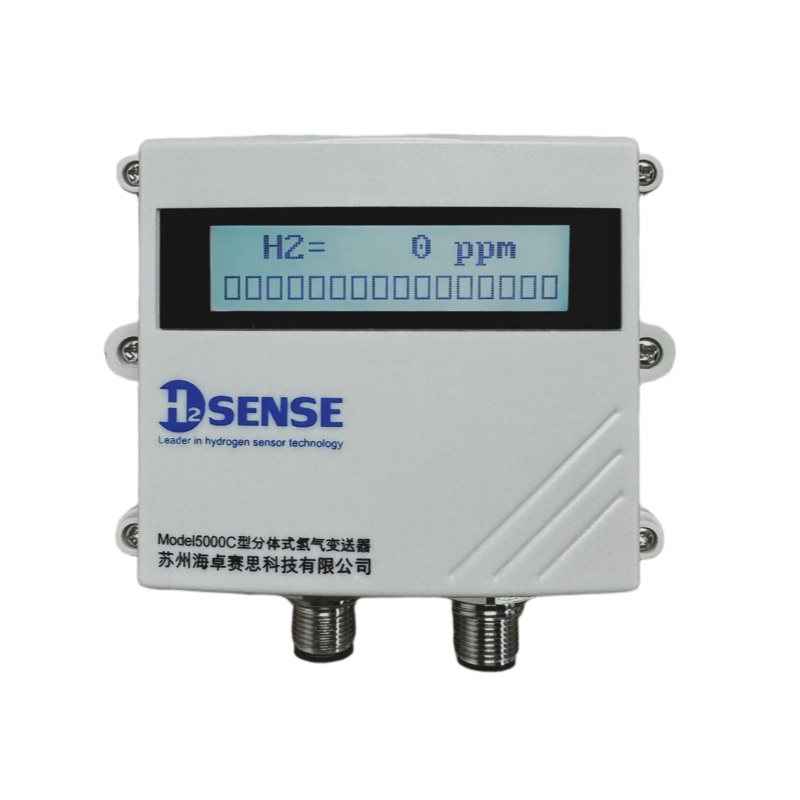Summarize
This blog post provides a comprehensive overview of hydrogen leak detectors, explaining their importance, the different types of detectors available, and how to select the best one for your specific needs. We highlight how H2SENSE technology contributes to safer hydrogen handling.

The Critical Role of Hydrogen Leak Detection
Hydrogen's flammability and leak-prone nature demand effective leak detection measures. A hydrogen leak detector is an essential safety device in any environment where hydrogen is produced, stored, transported, or used. From chemical plants to fuel cell facilities, prompt leak detection can prevent explosions, fires, and other hazardous situations.
Understanding Hydrogen Leak Detector Technology
Hydrogen leak detectors utilize various sensing technologies to detect the presence of hydrogen. The most common types include:
Electrochemical Sensors: Measure the change in electrical current caused by the oxidation of hydrogen gas. They are known for their sensitivity and relatively low cost.
Metal Oxide Semiconductor (MOS) Sensors: Detect changes in the electrical conductivity of a metal oxide material upon exposure to hydrogen. MOS sensors are durable and have a long lifespan.
Catalytic Bead Sensors (Pellistors): Measure the heat generated by the catalytic combustion of hydrogen. Pellistors are suitable for a wide range of hydrogen concentrations.
Thermal Conductivity Sensors: Measure the change in the thermal conductivity of a gas mixture due to the presence of hydrogen. These sensors are robust and can operate in harsh environments.
H2SENSE: Innovation in Hydrogen Detection
H2SENSE is committed to developing and manufacturing advanced hydrogen leak detectors that provide reliable and accurate performance. Our detectors incorporate state-of-the-art sensor technology and are designed to meet the most demanding safety requirements.
Performance Factors to Consider
When choosing a hydrogen leak detector, key performance factors to consider include:
Sensitivity: The minimum hydrogen concentration the detector can detect.
Response Time: The time it takes for the detector to respond to a leak.
Accuracy: The degree to which the detector's readings match the actual hydrogen concentration.
Selectivity: The detector's ability to differentiate between hydrogen and other gases.
Durability: The detector's ability to withstand harsh environmental conditions.
Applications Across Industries
Hydrogen leak detectors are essential for ensuring safety in a wide range of industries:
Chemical Processing
Petroleum Refining
Power Generation
Aerospace
Fuel Cell Development
Automotive
Semiconductor Manufacturing
Calibration for Accuracy
Regular calibration of your hydrogen leak detector is essential to maintain accuracy and reliability. Calibration involves exposing the detector to a known concentration of hydrogen gas and adjusting the instrument's readings accordingly.

Benefits of Early Leak Detection
Early detection of hydrogen leaks offers numerous benefits:
Prevents explosions and fires.
Protects personnel from injury.
Reduces equipment damage.
Minimizes downtime.
Complies with safety regulations.
Choosing the Right Hydrogen Leak Detector with H2SENSE
The H2SENSE team can help you select the optimal hydrogen leak detector for your specific needs. We offer a wide range of detectors with various features and specifications to meet diverse applications and budgets. Our experts can provide guidance on sensor selection, installation, calibration, and maintenance. By choosing H2SENSE, you can be confident that you are investing in a high-quality, reliable, and accurate hydrogen leak detector that will protect your personnel and facilities.
Conclusion
Effective hydrogen leak detection is paramount for ensuring safety in environments where hydrogen is used. By understanding the different types of hydrogen leak detectors available and selecting the right one for your application, you can minimize the risk of hydrogen-related incidents. H2SENSE is your partner in hydrogen safety.














